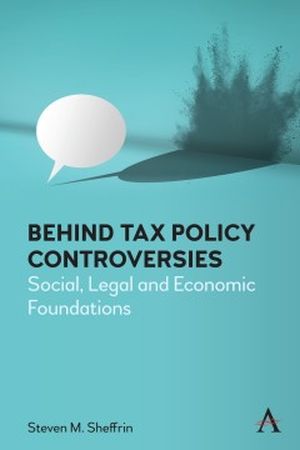
This book is designed to be a short, critical introduction to the controversies in tax policy. The main thesis of the book is that there is a deeper substructure to debates about tax policy that underlie many of the controversies. By understanding the nature of this substructure one can place the debates about tax policy into a broader perspective. The chapters in the book elucidate this underlying architecture, drawing on ideas from economics, law, philosophy, psychology, and political science.
Economic principles shape some of the foundations for the debates, particularly with regard to the question of whether income taxes should be structured with a broad base and low rates, and whether the appropriate base of taxation should be consumption or income. Legal and administrative issues provide another foundation for tax policy, as certain structural features of the tax system - the separate existence of corporations and the realization principle for income - constrain the set of feasible tax policies. To understand tax fairness, one must delve into philosophy and psychology. A key debate is whether we view taxation just through a purely distributional lens (who gets what) or must we think about notions of process and deservingness to make sense of debates on tax fairness.
The book uses these tools to shed light on these issues as well as on the most current debates. These include the appropriate goals for tax reform, the most judicious way to tax multinational corporations, our ability to tax the very wealthy, and whether the tax system has a racial subtext.